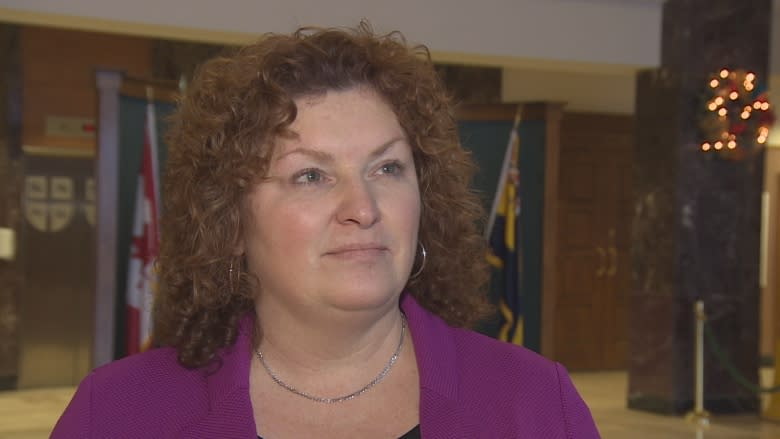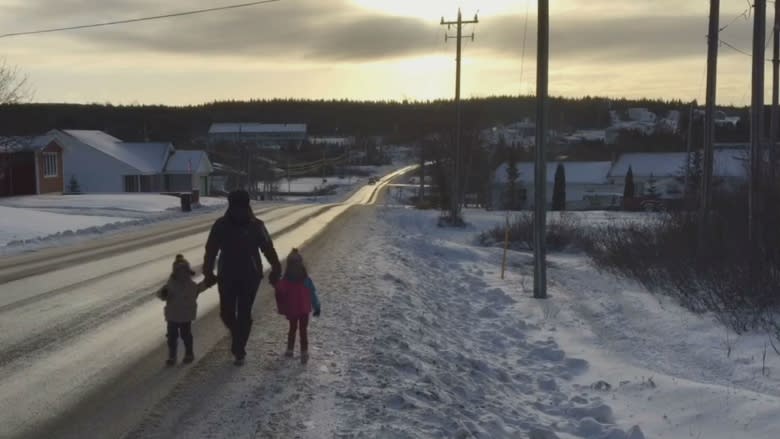Child protection legislation needs changes for Labrador kids, minister says
Sherry Gambin-Walsh admits she's not fully satisfied with the way the child protection system is being administered in Labrador, and hopes that ongoing dialogue with Aboriginal leaders in the region will lead to some much-needed improvements.
The minister of Children, Seniors and Social Development told CBC Radio Thursday a review of the Children and Youth Care Protection Act is well underway.
"We have consulted a number of times with Aboriginal leaders in Labrador … to try to adjust the legislation so we can then move forward and change some policies," Gambin-Walsh told The Current.
Aboriginal children from Labrador are vastly overrepresented in the child protection system, and dozens of them have been sent to non-Aboriginal communities on the Newfoundland's Northern Peninsula because of a dire shortage of foster homes in Labrador.
Extensive coverage by the CBC this week of the issue has ignited a public debate, with one Inuit leader equating the practice of placing Aboriginal children hundreds of kilometres away in communities like Roddickton with the residential schools scandal, and the so-called Sixties Scoop in Ontario.
Michelle Kinney, the deputy minister of health and social development with the Nunatsiavut Government, said the children are becoming assimilated into their white foster families, and adopting their values and beliefs.
"It's very similar to the residential school program. To the Sixties Scoop," said Kinney, referring to the government-sponsored schools that tried to assimilate children into Euro-Canadian culture.
No cultural, language courses
The Newfoundland and Labrador English School District acknowledged in a statement there are "no specific cultural or language courses offered for foster children" in Roddickton and Englee.
When asked if she saw any similarities between residential schools and the current situation on the Northern Peninsula, Gambin-Walsh said her department's mandate is the protection of children, and "it's the only choice we have."
When asked if that's good enough, Gambin-Walsh said, "No, it's not good enough for me. What's good enough for me is to try to create more foster families (in Labrador)."
Gambin-Walsh said children are only removed from Labrador after every effort is made to place them in their communities, preferably with other family members.
Labrador foster families being burned out
But Kinney is not convinced that enough is being done to increase the number of foster homes in Labrador.
She said the capacity is there, but the support is not, partly because of a shortage of social workers.
"We've lost a lot of foster parents over the years because we haven't been able to provide the level of support that they need," said Kinney.
"Social workers are stretched to the max. If they're out dealing with a removal or a crisis situation where there's a child at risk, supporting a foster parent who's going through a difficult time with their child gets put on the backburner and eventually placements break down and foster parents burn out and leave the system."
Kinney said the provincial government is spending hundreds of thousands of dollars to foster Aboriginal children on the Northern Peninsula. She said that money would be better spent on measures to prevent families from losing their children in the first place.
"In my opinion the children should be coming home," she said.
"The extended family needs to maintain that contact. Children need to maintain contact with their peers and be fully immersed in their culture, even if it's only for a visit."



